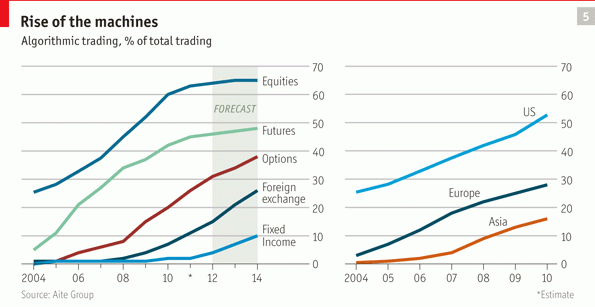This is a good 13 minute interview with Michael Lewis today. Very easy to understand I think.
One thing I Lewis says again is if you are buying stocks or ETF's, use limit orders not market orders. I've always used limit orders but didn't know they went a separate way into the system.
Link:
Lewis is way better than me at making analogies so I'll summarize some of the collusion I read in the book, but watch this interview.
Exchanges Income
Primarily make money by charging a fee for executing a trade.
That fee is passed on to us retail investors above our $8.95 commission fee typical $.50 for sale, same thing for institutional investors.
Connection fee for brokers, whole seller, the faster the connection the fee increases exponentially.
Co-Location fee. They charge high speed trading firm huge bucks to locate their service in the same location as the exchanges servers...
Special order type fee. We are familiar with market,limit order, perhaps you've seen All or None,or Kill or Fill. But the high speed trading firm have paid exchanges to add an addition 150 types of order.
One is example is Hide and Slide which cancel a sell trade (for example) if the is bid size larger than ask size..
Generally speaking these order are only useful for high speed computerized trading.
Exchanges expenses: beside the normal computer office, cost a big expense for exchanges is providing rebates to brokers or banks who route orders their exchange. In many case these rebates make very little economic sense except for they enable the High Speed Trading firms to take advantage of their trading speed to pick off the profitable orders. Buy 1000 shares of UPS at 98.00 because they know they can sell it a few milliseconds later to some else at 98.02.
Brokers make money from collecting the rebates, also some brokers like E-Trade also owned (or use to) exchanges.
Banks: The book listed too many ways that banks hose their customers for me to go over. But the use of dark pool, which in theory are suppose to hide the trade of the large institutional firms but seem like they are really just design scalp them is one of the biggest.




